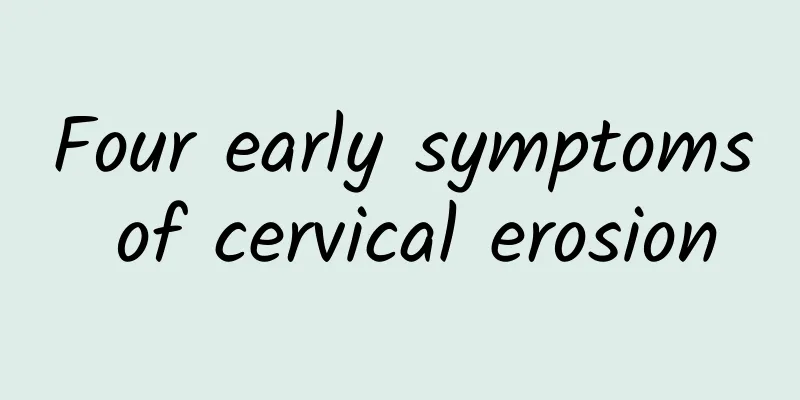Is dysmenorrhea harmful for teenage girls?

|
Dysmenorrhea in adolescent girls is often a physiological phenomenon, but if it is accompanied by severe pain, it may be a hidden health problem and requires special attention. Dysmenorrhea can be divided into primary and secondary. Primary dysmenorrhea is generally related to genetics and hormonal fluctuations, and usually becomes obvious a few years after menarche. This type of dysmenorrhea will not cause long-term harm to the body. However, if dysmenorrhea is frequent and severe enough to affect the quality of life, it may be due to pathological factors such as endometriosis, pelvic inflammation or ovarian cysts (secondary dysmenorrhea), which may affect fertility and overall health. The causes of dysmenorrhea can be traced back to genetic and physiological factors. Genetic susceptibility and imbalanced estrogen levels are common internal causes. Environmental factors such as psychological stress, lack of sleep and poor eating habits can also aggravate symptoms. Physiological structures such as an anteverted or vertical uterus and excessive prostaglandin production in the body can directly cause dysmenorrhea. If over-the-counter medications and home remedies are ineffective, it may be secondary dysmenorrhea. The cause can be confirmed through gynecological examinations, ultrasound or laparoscopy, and timely treatment can help prevent the condition from worsening and reduce potential impacts on fertility. The causes of dysmenorrhea can be traced back to genetic and physiological factors. Genetic susceptibility and imbalanced estrogen levels are common internal causes. Environmental factors such as psychological stress, lack of sleep and poor eating habits can also aggravate symptoms. Physiological structures such as an anteverted or vertical uterus and excessive prostaglandin production in the body can directly cause dysmenorrhea. If over-the-counter medications and home remedies are ineffective, it may be secondary dysmenorrhea. The cause can be confirmed through gynecological examinations, ultrasound or laparoscopy, and timely treatment can help prevent the condition from worsening and reduce potential impacts on fertility. If dysmenorrhea seriously affects your life, it is recommended to see a doctor and undergo a detailed examination to rule out pathological factors. Dysmenorrhea can be relieved by adjusting lifestyle and medication. Applying hot compresses to the lower abdomen or using a hot water bottle can relieve muscle tension. Moderate exercise such as yoga and walking can help improve blood circulation. Maintaining a regular schedule and a healthy and balanced diet also have a positive effect on symptom relief. For drug treatment, non-steroidal anti-inflammatory drugs such as ibuprofen are effective in relieving pain. If accompanied by long-term symptoms, hormonal therapy can be considered, such as oral contraceptives to help regulate the menstrual cycle. Do not ignore persistent or aggravated dysmenorrhea symptoms to avoid the development of potential diseases. |
<<: What are the dangers and sequelae of Bartholinitis?
>>: Is there a relationship between Bartholin's gland cyst and sexual infection?
Recommend
Is cervical erosion related to pregnancy?
Cervical erosion usually does not directly affect...
Is there a high chance of pregnancy with severe cervical erosion? Pay attention to these when treating severe cervical erosion
Many female patients are worried that if their ce...
What should patients with vulvar leukoplakia pay attention to in daily life?
What should patients with vulvar leukoplakia pay ...
Young woman loses 36 kg in half a year and successfully wears beautiful clothes
In order to wear beautiful clothes and show off h...
What is a Bartholin's gland cyst? What medicine is good for a Bartholin's gland cyst?
Bartholin's gland cyst is caused by the obstr...
What causes uterine fibroids? How to treat them?
What causes uterine fibroids? How to treat them? ...
Brown sugar water can promote blood circulation and remove blood stasis, but pregnant women should never drink brown sugar water to protect their fetus!
Brown sugar water is a panacea for women. They ca...
Congenital absence of vagina poses a threat to women's health
What is female vaginal amenorrhea? This is what m...
Losing weight is not just about weight. Exercise at home to reduce body fat
Are you still obsessed with the numbers on the sc...
Are cervical cysts the same as ovarian cysts? How are they treated?
Cervical cysts and ovarian cysts are two complete...
How to know if cervical erosion recurs?
How to know if cervical erosion recurs? Cervical ...
How to effectively treat congenital absence of vagina
Some women have some abnormalities during embryon...
Overeating due to stress will make you gain more weight! Nutritionist: 5 tips to avoid emotional eating and avoid obesity
Faced with the epidemic and the high pressure of ...
Teach you seven ways to relieve dysmenorrhea
Monthly menstruation is often a painful experienc...
What are the symptoms of functional uterine bleeding?
The main symptoms of functional uterine bleeding ...









